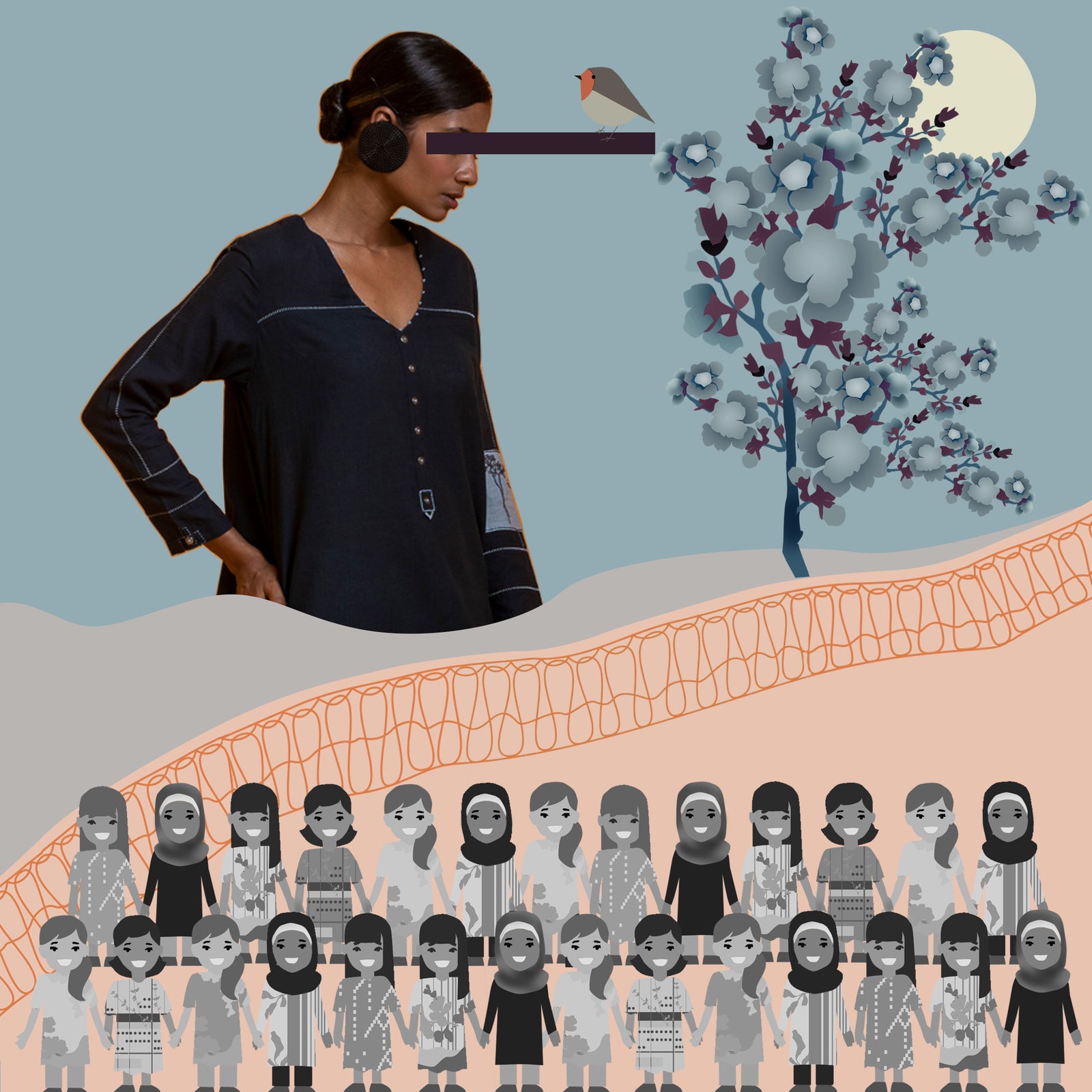How we are striving towards Sustainability : The problem and the solution
Sustainability, seeks empowerment through dependency. With growing awareness about sustainable lifestyles, more buyers are inclined towards handmade and organic products.
- India as a country that boasts of unity woven through diversity is rich enough to create a new saga, by respecting the symbiotic relationship that have developed over centuries. Like that of craftsmen and designers!! Designers have worked with crafts.
- Artisans themselves are limited to traditional designs, and do not have formal training in design or skill-development and therefore rely on external support reducing themselves to handicraft labourers. As responsible and ethical fashion and textile designers, Our Project enables artisans to develop a sustainable livelihood through learning design, enhancing their skills, and help them sustain livelihood.
- We are presently working with more than 50 weaving clusters all across India, each cluster having more than 50 textile hand weavers.
- We are training our hand weavers towards new innovation in textiles and creating “uncorrupted”, “sustainable” fashion and lifestyle products with developed textiles in a contemporary way.
- We are a “slow fashion brand” and we believe in slowing down the process and not slowing down production. We are working towards bigger and better distribution channels and reach out to more and more people, thereby creating more awareness, and as a result creating more jobs in the small scale industry sector like our weaving community.
- We strongly believe, that we can only achieve more awareness towards sustainability through “INCLUSIVITY”. 50 percent of the artisans are women, who works on their looms at home alongside maintaining household chores and mostly belong to the group of daily wage earners, and form the backbone of the micro and small scale industries.
- As a part of our conscious and ethical practices, we follow a fair trade system, by eradicating middle men, and outside job work, thereby giving us the opportunity to provide fair wages and fair prices to our artisans, and at the same time cut cost at every level and achieve a “believable price tag” for all our products. A “believable and approachable price tag” also gives us the opportunity to reach out to more and more people from different economic and social background, thereby following “inclusivity” and achieve sustainability.

